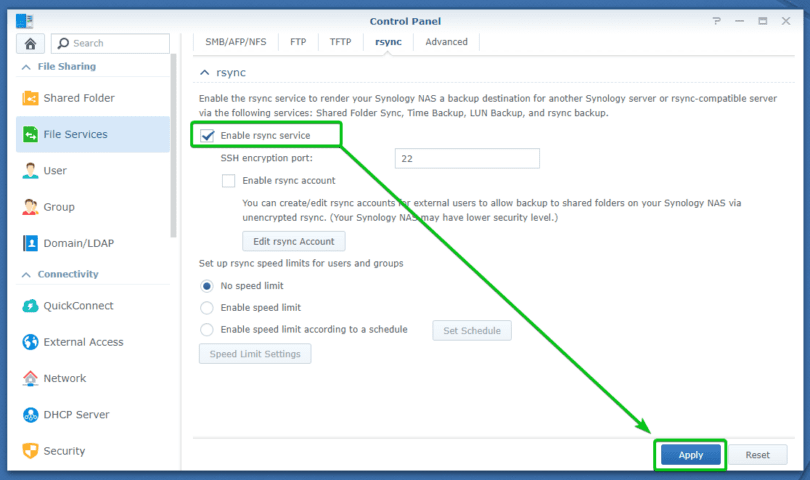

If the source and destination are separate hosts with over ssh then the checksums happen mostly in parallel on both hosts and it's not nearly as much of a hit, but still takes longer. If the source or destination is a network drive then that can also be really slow. If source and destination are on the same disk drive, then this can cause extreme disk thrashing and slow it down even more. What is taking longer with checksum is that it is reading every single file in it's entirety on the destination and on the source to compare both sides. The remote-update protocol allows rsync to transfer just the differences between two sets of files across the network link, using an efficient checksum-search. without doing the checksum you can only be ~reasonably~ sure this is the case. Otherwise a file might be skipped because the size and timestamp indicated it was already transferred. c, -checksum, skip based on checksum, not mod-time & size, Yes. You may want to use the -r / -recursive option to recurse into directories. The -P option is the same as -partial -progress, which keeps partially transferred files and shows a progress bar. It is the way to ensure that all files on the destination are checked for integrity. The Rsync program is a UNIX system-based tool that allows you to copy content. rsync can be used as an advanced alternative for the cp or mv command, especially for copying larger files: rsync -P source destination. c will checksum every single file in the destination directory (or at least files that match the source transfer list).
RSYNC CHECKSUM VERIFICATION
Note that rsync always verifies that each transferred file was correctly reconstructed on the receiving side by checking a whole-file checksum that is generated as the file is transferred, but that automatic after-the-transfer verification has nothing to do with this option's before-the-transferĬan you see both your questions answered? The receiver generates its checksums when it is scanning for changed files, and will checksum any file that has the same size as the corresponding sender's file: files with either a changed size or a changed checksum are selected for transfer. The sending side generates its checksums while it is doing the file-system scan that builds the list of the available files. Generating the checksums means that both sides will expend a lot of disk I/O reading all the data in the files in the transfer (and this is prior to any reading that will be done to transfer changed files), so this can slow things down significantly. This option changes this to compare a 128-bit checksum for each file that has a matching size. Without this option, rsync uses a lqquick checkrq that (by default) checks if each file's size and time of last modification match between the sender and receiver. This changes the way rsync checks if the files have been changed and are in need of a transfer.


 0 kommentar(er)
0 kommentar(er)
